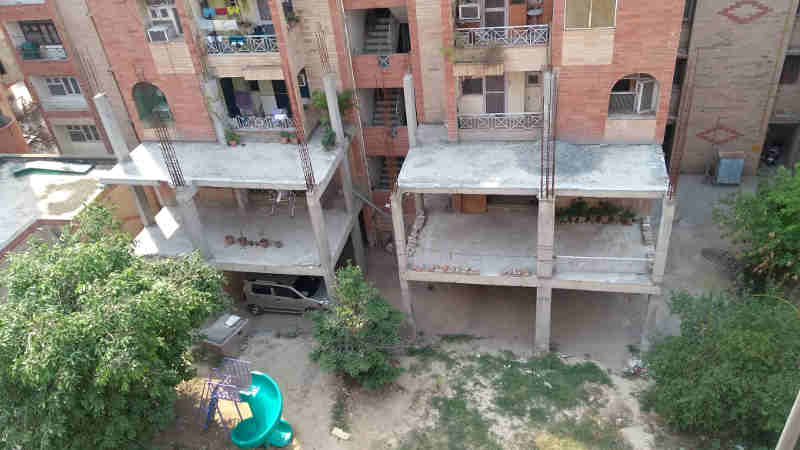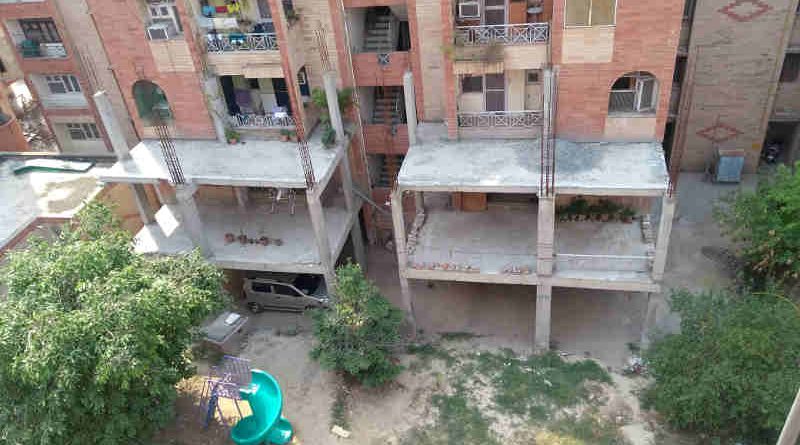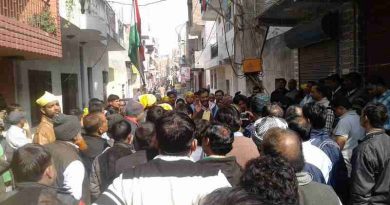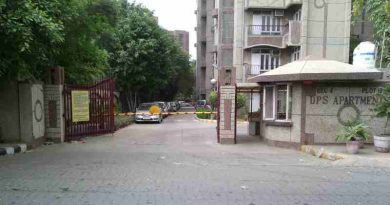How to Stop FAR Construction in Your Housing Society

How to Stop FAR Construction in Your Housing Society
While FAR construction in occupied group housing societies is a criminal activity, this article explains the steps you should take to stop it in your housing society.
By Rakesh Raman
Most residents of Delhi know by now that the FAR (floor area ratio) extended construction in cooperative group housing societies (CGHS) is a totally illegal activity, as court has also stopped it.
FAR construction is being planned or happening only in those housing societies where the managing committee (MC) members are crooks and who want to swindle public money in such high-value construction projects.
FAR is not being pursued in the societies where MC members are honest and believe in the rule of law. FAR construction is a big criminal racket being run by MC members, builders, and corrupt government officials of the Registrar Cooperative Societies (RCS) and Delhi Development Authority (DDA).
If you want to fully understand the criminality in FAR construction and corruption, you can click here to study the case of DPS CGHS, which is perhaps the most corrupt society in Delhi.
Since government is involved in this crime, you cannot expect government to stop pollution-fueled FAR construction. In order to seek justice in a corrupt country like India, you will have to go to a court.
FAR construction will immediately stop in all housing societies if some of the MC members who are planning it are arrested and jailed. So, you should make your case in such a way that your MC members are imprisoned because of the FAR construction crime they are committing. Your case must include charges of cheating, fraud, extortion, intimidation, and attempt to murder against your society’s MC members.
Join RAFAR (Residents Against FAR) Group
As a journalist and social activist, I have been running major campaigns to stop FAR construction and pollution in Delhi. People from all over Delhi contact me to discuss their cases and get FAR construction stopped in their societies.
Of late, I have learnt that members of Chandanwari CGHS, Sector-10, Dwarka have filed a court case against FAR construction in their society. The next date of hearing is November 2, 2018. As FAR activity is unlawful, members of many other societies are planning to file their cases in court.
But it will be helpful to all those who oppose FAR to work together against FAR construction and pollution. You should join the RAFAR (Residents Against FAR) group and participate actively in its campaign against FAR.
As many people are joining RAFAR group, we are planning some major activities including a rally possibly in Dwarka to protest against FAR. While it will be extremely difficult for individual members to file court cases, with your support the RAFAR group can also plan to file a public interest litigation (PIL) to stop FAR construction in all group housing societies of Delhi.
So, you must join RAFAR group by filling in the form given below… and continue reading the article below the form.
FAR Construction Is Illegal
A resident of R. D. Apartments where Delhi High Court has stopped FAR construction in an ongoing case has created an infographic to help the residents who want to stop FAR construction in their housing societies. He is a member of the RAFAR (Residents Against FAR) group described above.
With his infographic, he explains how FAR construction violates many laws including Delhi Apartment Ownership Act, Delhi Fire Service Rules, UBBL-2016, etc. Therefore, FAR is a criminal activity that cannot be carried out in occupied group housing societies.
Although the infographic reveals that FAR construction breaks so many laws that it is not legally possible to carry out FAR, it has given a few examples that show FAR is an unlawful activity.
The Delhi Apartment Ownership Act, for example, stipulates that “The percentage of the undivided interest of each apartment owner in the common areas and facilities shall have a permanent character, and shall not be altered without the written consent of all the apartment owners.”
That means if “all the apartment owners” have not given their “written consent,” FAR construction will be illegal and it cannot be done in the housing society.
The Act further states, “Each apartment owner may use the common areas and facilities in accordance with the purposes for which they are intended without hindering or encroaching upon the lawful rights of the other apartment owners.”
That means when FAR construction or any other construction or repair is done in a society building it must not “encroach upon the lawful rights of the other apartment owners.”
Now, with mere common sense, you can understand that FAR construction or any repair is not allowed in a housing society building if even a single apartment owner gets disturbed. That further proves the fact that FAR construction or building repair in a housing society building is not allowed even if majority of the members favor such construction or repair.
Similarly, it explains the criminality involved in the approvals given by Delhi Urban Art Commission (DUAC) and Delhi Fire Service (DFS) which are giving approvals blindly to corrupt MC members.
You can click here to study the infographic to know how FAR construction is a criminal activity.
DDA Corruption
While DDA is a corrupt organization, it is giving conditional permits to housing societies where the MC members make false commitments that they will not break the extant laws while carrying out FAR construction. Since DDA knows that FAR construction in an occupied group housing society is illegal, it does not take its responsibility.
It says “DDA will stand indemnified and kept harmless from all proceedings in courts and before other authorities of all expenses / losses / claims which the DDA may incur or become liable to pay as a result or in consequences of the sanction accorded by it to these building plans (submitted by the MCs for FAR).”
While DDA also knows that the MCs of housing societies and their builders are making false claims for getting DDA approvals for FAR, it warns them by saying:
“The sanction will be void ab initio if any material fact has been suppressed or misrepresented of if auxiliary conditions mentioned above are not complied.”
But if you want to prove that the MC is breaking the DDA-specified conditions, you can prove it only when the construction has begun. So, you should file your court case to stop FAR construction ideally after a few months of FAR construction in your society.
Although at that stage your society building will be in a totally dilapidated condition (see picture above) and become a disputed property, it will inflict maximum damage on the MC members and others who supported and paid for FAR construction.
Remember, when you file the court case to stop FAR construction, always make the case against the society MC members by name because they are the criminals who are misleading other members to support FAR construction which is harmful to men, women, and children living in the building.
[ Join RAFAR to Save People from FAR Construction and Pollution in Delhi ]
By Rakesh Raman, who is a national award-winning journalist and social activist. He is the founder of a humanitarian organization RMN Foundation which is working in diverse areas to help the disadvantaged and distressed people in the society.




